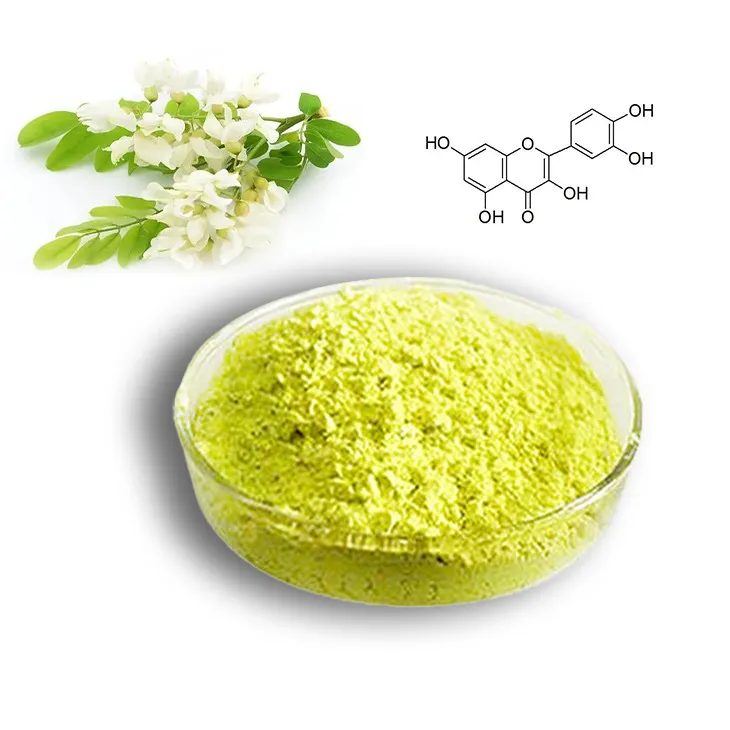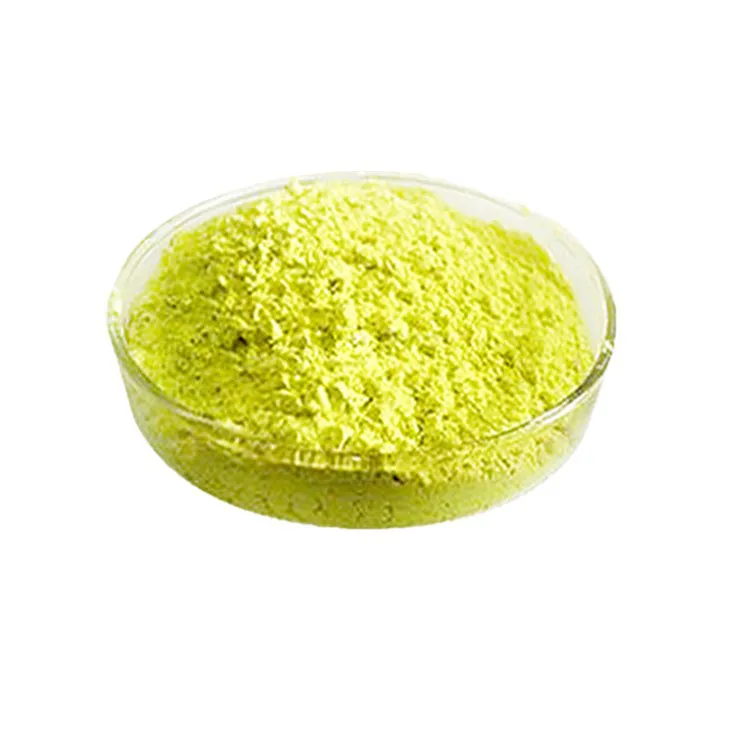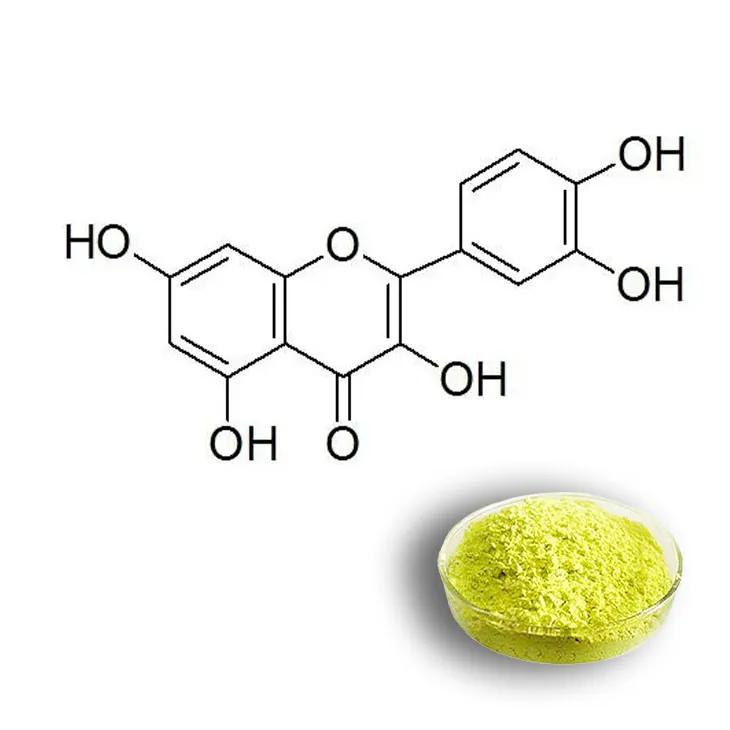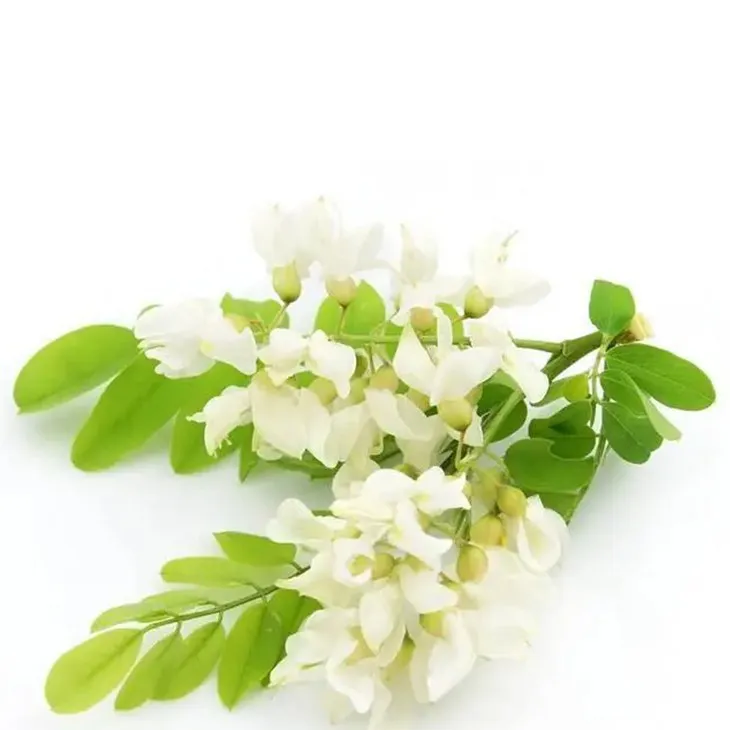- 0086-571-85302990
- sales@greenskybio.com
Quercetin can reduce high blood pressure.
2024-11-12

1. Introduction
Hypertension, also known as high blood pressure, is a major global health concern. It affects a significant portion of the world's population and is a leading risk factor for various cardiovascular diseases, such as heart attacks, strokes, and heart failure. Quercetin, a natural bioactive compound found in many fruits, vegetables, and grains, has emerged as a potential solution for reducing hypertension.

2. Physiological Mechanisms of Quercetin in Reducing Hypertension
2.1 Vasodilation
One of the key mechanisms through which Quercetin exerts its antihypertensive effect is vasodilation. Vasodilation refers to the widening of blood vessels, which in turn reduces the resistance to blood flow. Quercetin acts on the endothelial cells that line the blood vessels. It stimulates the production of nitric oxide (NO), a potent vasodilator. NO relaxes the smooth muscle cells in the vessel walls, causing the blood vessels to dilate. This dilation leads to a decrease in blood pressure as the heart does not need to work as hard to pump blood through the less - resistant vessels.
2.2 Modulation of the Renin - Angiotensin - Aldosterone System (RAAS)
The renin - angiotensin - aldosterone system plays a crucial role in blood pressure regulation. Renin is an enzyme that is released when blood pressure is low or when there is a decrease in blood volume. Renin acts on angiotensinogen to produce angiotensin I, which is then converted to angiotensin II by the angiotensin - converting enzyme (ACE). Angiotensin II is a powerful vasoconstrictor and also stimulates the release of aldosterone, which promotes sodium and water retention in the kidneys, thereby increasing blood volume and blood pressure.
Quercetin has been shown to modulate the RAAS. It can inhibit the activity of ACE, reducing the production of angiotensin II. By doing so, it counteracts the vasoconstrictive and blood volume - increasing effects of the RAAS, leading to a reduction in blood pressure. Additionally, quercetin may also have an impact on the release of renin itself, further regulating the system.

3. Safety and Optimal Dosage of Quercetin Supplementation
3.1 Safety
Quercetin is generally considered safe when consumed in normal dietary amounts. However, when it comes to supplementation, some considerations are necessary. In high doses, quercetin may cause some side effects such as gastrointestinal discomfort, including nausea, vomiting, and diarrhea. It is important to note that individual responses to quercetin can vary, and some people may be more sensitive to its effects.
Moreover, quercetin may interact with certain medications. For example, it may interfere with the absorption or metabolism of some drugs. Therefore, it is crucial for individuals who are taking medications, especially those for blood pressure or other chronic conditions, to consult their healthcare provider before starting quercetin supplementation.
3.2 Optimal Dosage
Determining the optimal dosage of quercetin for reducing hypertension is still an area of research. Current studies suggest that doses ranging from 500 - 1000 mg per day may have beneficial effects on blood pressure. However, more research is needed to establish a more precise optimal dosage. Factors such as an individual's age, sex, overall health status, and the presence of other medical conditions may influence the appropriate dosage.

4. Comparison with Other Antihypertensive Drugs and Therapies
4.1 Unique Advantages of Quercetin
Quercetin has several unique advantages compared to traditional antihypertensive drugs. Firstly, it is a natural compound, which may be more appealing to individuals who prefer natural remedies. It has a relatively low risk of causing some of the severe side effects that are associated with some pharmaceutical antihypertensive agents, such as dry cough with ACE inhibitors or electrolyte imbalances with diuretics.
Secondly, quercetin may have additional health benefits beyond blood pressure reduction. It has antioxidant, anti - inflammatory, and anti - platelet properties. These properties can contribute to overall cardiovascular health by reducing oxidative stress, inflammation, and the risk of blood clot formation.
4.2 Potential in Combination Therapies
Quercetin also shows potential in combination therapies for better blood pressure control. When combined with other antihypertensive drugs, it may enhance the overall effectiveness of blood pressure reduction. For example, in combination with ACE inhibitors, quercetin's ability to inhibit ACE could complement the action of the drug, leading to a greater decrease in blood pressure.
Similarly, when combined with diuretics, quercetin's antioxidant and anti - inflammatory properties may help to counteract some of the potential side effects of diuretics, such as increased oxidative stress. Additionally, combination therapies may allow for lower dosages of individual drugs, reducing the risk of side effects associated with high - dose monotherapy.

5. Conclusion
In conclusion, quercetin offers a promising approach for reducing hypertension. Its physiological mechanisms, including vasodilation and modulation of the RAAS, provide a scientific basis for its antihypertensive effects. While considerations regarding safety and optimal dosage are important, quercetin's unique advantages compared to traditional drugs and its potential in combination therapies make it an attractive option for further research and potential application in blood pressure management. However, more studies are needed to fully understand its long - term effects, optimal dosage regimens, and its role in different populations with hypertension.
FAQ:
What is quercetin?
Quercetin is a bioactive compound. It is found in many plants such as fruits, vegetables, and grains. It has various biological activities and is being studied for its potential health benefits, including its role in reducing hypertension.
How does quercetin affect vasodilation?
Quercetin can influence vasodilation through several ways. It may act on endothelial cells, promoting the release of nitric oxide. Nitric oxide is a key molecule that relaxes blood vessels, leading to increased lumen diameter and reduced blood pressure.
What is the optimal dosage of quercetin supplementation for reducing high blood pressure?
The optimal dosage of quercetin for reducing high blood pressure can vary depending on factors such as individual health status and the severity of hypertension. Current research is still exploring this, but some studies suggest certain ranges. However, it is important to note that high - dose supplementation should be done under medical supervision to avoid potential adverse effects.
How does quercetin compare to traditional antihypertensive drugs?
Quercetin has some unique features compared to traditional antihypertensive drugs. While drugs like ACE inhibitors directly target the renin - angiotensin - aldosterone system, quercetin modulates this system in a different way. Quercetin may also have fewer side effects in some cases. However, drugs are often more potent and have been more extensively studied in large - scale clinical trials for blood pressure control. Quercetin may have potential in combination therapies with drugs to enhance the overall antihypertensive effect.
Is quercetin safe for long - term use in reducing hypertension?
Generally, quercetin is considered relatively safe for long - term use. However, like any supplement, there can be potential side effects. Some people may experience mild gastrointestinal discomfort. Also, it can interact with certain medications. So, before starting long - term quercetin supplementation for hypertension, it is advisable to consult a healthcare provider.
Related literature
- Quercetin and Hypertension: A Review of the Mechanisms and Therapeutic Potential"
- "The Role of Quercetin in Cardiovascular Health: Focus on Blood Pressure Regulation"
- "Quercetin Supplementation in Hypertension: Efficacy and Safety Considerations"
- ▶ Hesperidin
- ▶ citrus bioflavonoids
- ▶ plant extract
- ▶ lycopene
- ▶ Diosmin
- ▶ Grape seed extract
- ▶ Sea buckthorn Juice Powder
- ▶ Beetroot powder
- ▶ Hops Extract
- ▶ Artichoke Extract
- ▶ Reishi mushroom extract
- ▶ Astaxanthin
- ▶ Green Tea Extract
- ▶ Curcumin Extract
- ▶ Horse Chestnut Extract
- ▶ Other Problems
- ▶ Boswellia Serrata Extract
- ▶ Resveratrol Extract
- ▶ Marigold Extract
- ▶ Grape Leaf Extract
- ▶ blog3
- ▶ blog4
- ▶ blog5
-
Organic Tongkat Ali extract powder factory.
2024-11-12
-
How to make powder with ashwagandha extract.
2024-11-12
-
Rosehip extract manufacturers from China.
2024-11-12
-
The best cat's claw extract in nature.
2024-11-12
-
Chinese Dandelion Leaf Extract Suppliers.
2024-11-12
-
Red Wine Extract
2024-11-12
-
Diosmin
2024-11-12
-
Hawthorn powder
2024-11-12
-
Sophora Japonica Flower Extract
2024-11-12
-
Pine bark Extract Powder
2024-11-12
-
Tamarind extract powder
2024-11-12
-
Acai Berry Extract
2024-11-12
-
Apricot Powder
2024-11-12
-
Andrographis Paniculata Extract Powder
2024-11-12
-
Thunder God Vine Extract
2024-11-12





















